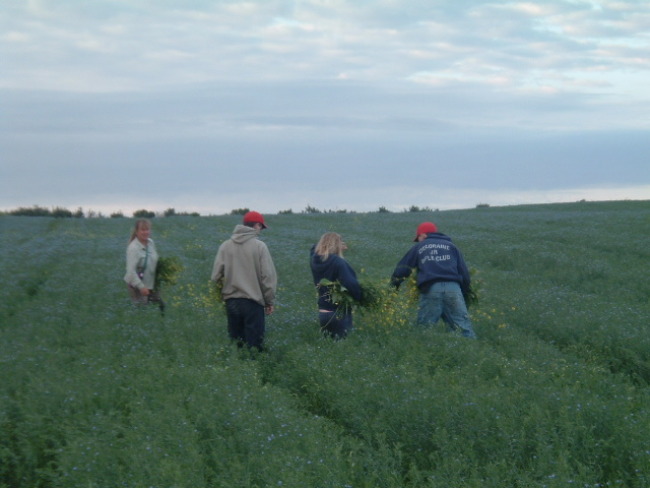Are you thinking of certified organic farming? Here’s some information to get you started:
-
Read the Canadian Standards and Regulations to learn the requirements.
-
Attend Workshops, Seminars and Conferences. Check our Calendar for upcoming events.
-
Talk to other farmers.
Research
-
Check out the Links and Resources page for web sites where you can purchase books, borrow books or access other resources to learn about the transition to organics: Canadian Organic Growerso, The Organic Federation of Canada, or the Organic Trade Association
Know your Land
-
Organics works with nature. You need to know what plants and livestock are most suitable for your land. It’s also important to know when synthetic chemicals were last used on your farm.
Consider your market
-
Make some inquiries to determine what is currently in demand or if the product you want to produce has a local market. If you must export out of the province you need to know in advance if there are special regulations to consider.
Choose a Certification Body
-
There are many qualified certifying organizations.The Canadian Food Inspection Agencymaintains a current list and it's advisable to contact more than one certifier. Examine their documents and forms to determine which agency is best for your operation. It’s also a good idea to talk to the certified organic growers around you to discuss your options and choose the right Certification Body for you.
Make a Transition Plan
-
It takes three years to transition a farm from chemical use to organic production. Fields may be transitioned by growing a vigorous, competitive crop, or a green manure crop or a forage crop during those two transition years. The first and second year transition crops are considered non-organic and may be sold into the conventional market or fed to livestock. Contact your certifying body to ensure that your transition plan meets their requirements.
Keep Detailed Records
-
Traceability is an important aspect of organic certification. Detailed records are needed for each field, including seeding data, tillage dates, harvest, storage and sales records. Livestock is tracked with detailed feed and health records.

The Certification Process
Once you have learned about organics, made a transition plan, compiled your records, and submitted an application for organic inspection to your Certifier, it's time for your first Organic Inspection.
The certifying body you have chosen will send an inspector to visit your operation, at your expense. The inspector’s job is to ensure that you have adhered to your submitted Organic Production Plan and that you have met the requirements to qualify for organic certification. The Inspector will inform you about any changes needed to ensure compliance with the Organic Standard.
For more information about the certification process contact a certifier. See theCanadian Food Inspection Agencypages for a list of available services.
Financial support for new organic ventures is available from the provincial government.Manitoba Agriculture, Food and Rural Initiatives (MAFRI)offers the Manitoba Organic Transition Program to offset the costs associated with organic certification for the three-year transition period.

